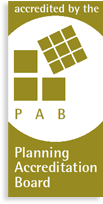About
The Master of Urban and Regional Planning (MURP) is a two-year professional curriculum. The program is one of only four in the Pacific Northwest that is professionally accredited by the Planning Accreditation Board. You’ll learn how to make a difference in your community and solve real-world problems. We provide unique opportunities for those who want to play a part in shaping a better future. Our graduates succeed in finding employment both in the United States and internationally.
Application Information Curriculum & RequirementsPublic Information


